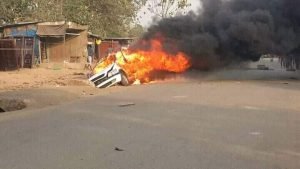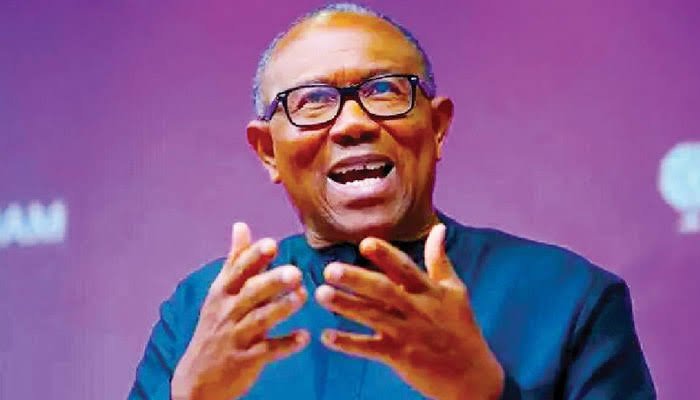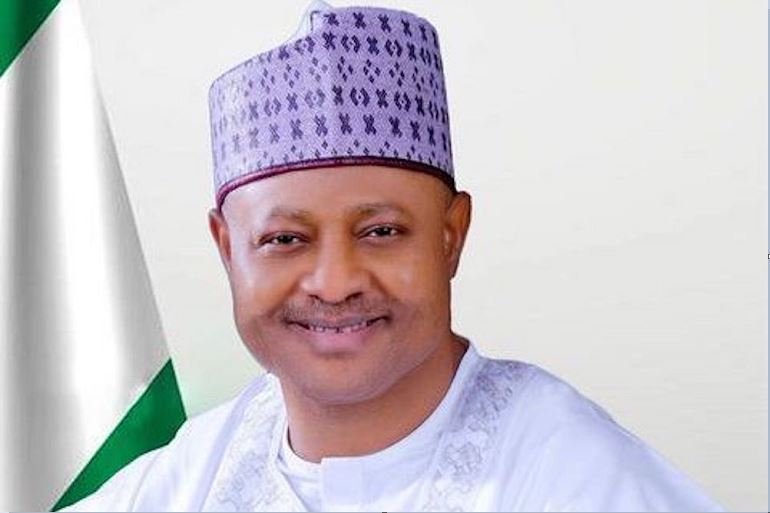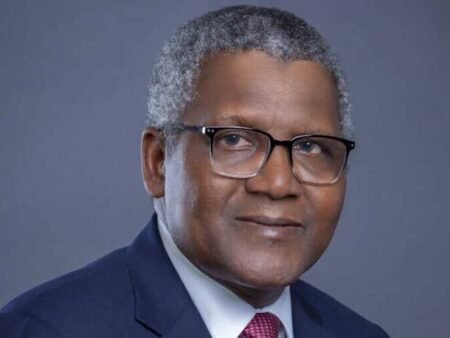Peter Obi, the Labour Party’s 2023 presidential candidate, has criticized Minister of Works David Umahi for claiming that “it is not yet the turn of the South-East” to produce Nigeria’s president in 2027.
Umahi, in an interview with the News Agency of Nigeria on Sunday, encouraged South-East lawmakers to abandon their presidential dreams and support President Bola Tinubu’s re-election.
Obi responded through his media aide and National Coordinator of the Obedient Movement Worldwide, Dr. Yunusa Tanko, saying that only the voter, not political elites, has the authority to decide who becomes president.
“It is a democratic setting, and it is the people who will decide who becomes the next president, not any individual,” Obi told The PUNCH in a phone interview. “Performance and track record will determine what the people want. That is how it should be.”
Obi added that while the debate over regional rotation should not ordinarily dominate politics, it had become the reality in Nigeria.
“Ordinarily, we shouldn’t be having talks about whether it should be a southern or northern candidate,” Obi said. “But since it has already been established for the unity of this country, the status quo should remain.”
Earlier, Umahi had said Tinubu should be allowed to complete his constitutionally permitted eight years in office before the South-East can aspire to the presidency.
“No, it is not our time yet,” Umahi said. “We, the 17 southern governors, met in Asaba before the 2023 election and agreed that the next president should come from the South. The crown came upon President Bola Tinubu. He has to finish his eight years, which belong to all of us—both South and North. After 2031, the Southeast can vie.”
2027: Umahi drums support for Tinubu, says presidency not yet S’East turn
2027: Obi will not step down for anybody – Labour Party
2027: Labour Party urges Atiku to step down for Peter Obi
The former governor of Ebonyi State argued that Tinubu’s administration had been fair to all parts of the country, particularly the South-East, citing multibillion-naira infrastructure projects in the region such as the Enugu-Onitsha Road, the Port Harcourt-Aba-Umuahia-Enugu Dual Carriageway, and the Abakaliki-Benue Boundary Trans-Sahara Road.
“Right now, President Bola Tinubu does not want to know where you come from. He is treating everybody very nicely,” Umahi said, urging the region to appreciate the President’s gesture rather than agitate for power.
Umahi’s comments have revived the controversy over Nigeria’s zoning and power rotation system.
Since 1999, the Southeast has not produced a president, sparking ongoing calls for equity and inclusion.
Obi’s reaction reflects a rising belief among opposition politicians that the 2027 election should be chosen by citizens, not elite agreement or political force.
Analysts believe the exchange exemplifies early maneuvering ahead of the next general election, as politicians begin to draw battle lines between loyalty to the ruling All Progressives Congress and the need for regional balance.
Meanwhile, the Obidient Movement has warned the APC against celebrating the flood of opposition party defections in the South-East, claiming that such movements will not result in electoral gains for President Tinubu in 2027.
Tanko said the trend of defections was politically motivated and aimed at subverting the will of the people.
“Most of these governors do not have the mandate of the people to do what they are doing,” Tanko said. “The APC-led Federal Government is desperately chasing the funds as a carrot.” Many are rushing to collect their share.”
Speaking from Nnewi, Tanko added that coercion and inducement would not change voter sentiment in the region.
“When the chips are down, the people will show their anger,” he said. “The Southeast electorate remains loyal to the ideals of justice and accountability.”
In response to news of Enugu State Governor Peter Mbah’s anticipated defection to the APC, founding APC member Osita Okechukwu called the move a “defining political moment” and the symbolic end of the PDP’s reign in the region.
“Governor Mbah’s defection is a pragmatic and inevitable decision,” Okechukwu said. “It marks the total collapse of PDP’s dominance in the South-East—from controlling all five state governments in 1999 to having none in 2025.”
He remembered how the late Senate President, Chuba Okadigbo, complained that the PDP “pays good deeds with bad coins,” claiming that years of neglect and contempt for zoning had alienated the party from the South-East.
Okechukwu cited the PDP’s 2023 presidential primary, in which no southern aspirant was permitted to compete, as well as the debate over the National Secretary position, to argue that the region’s disappointment had been predicted for some time.
“The last straw that broke the PDP’s camel’s back was its deliberate marginalization of the South-East during the National Secretary controversy,” he said.
He also cited former Senate President and PDP Board of Trustees Chairman Adolphus Wabara, who once lamented the party’s “continued trampling” of the South-East despite its unwavering support since 1998.
“Governor Mbah’s exit,” Okechukwu concluded, “is not an isolated event—it is the final chapter in the South-East’s disillusionment with a party that failed to reward faithfulness, fairness, and friendship.”










